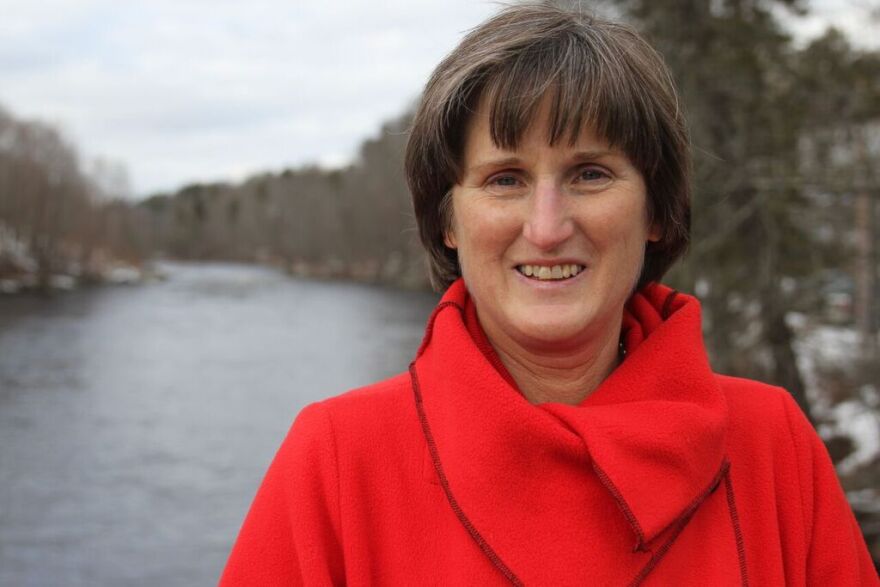With the increased stress, confinement, and economic uncertainty that has come with COVID-19, child abuse experts are concerned abuse at home may increase and go unreported. Moira O'Neill is the director of New Hampshire's Office of the Child Advocate. She says that with schools closed, many children have lost their safety net, and that we all should be thinking about that.
O'Neill spoke with NHPR's Peter Biello about her concerns, and about what the public can do to help.
Editor’s note: This transcript has been lightly edited for clarity.
You've said you expect child abuse cases to increase during this time. Why would that happen?
We do. You know, this could be such an exciting time for families to be spending more time with each other, but in fact, there's so much stress involved with not knowing about the virus and not being able to go to work and pay the bills. And so we're seeing stress. These are the kinds of things that that stress the family into dysfunction on any given day. We also have some interesting data out of Wuhan, China where they saw child abuse and domestic violence against women increased to three times the rate. So we just know, unfortunately, that in these times of stress, you're going to see a lot more child abuse and neglect happening in homes.
And part of that, too, is that there will be a decrease in the reporting of child abuse, or at least you think so. Why would that be the case?
And that is what we're seeing. So the most important loss to what we call 'the safety net' for kids is that they're not in school anymore. They're not out in the open where people are looking at them. Those teachers, child care workers, after school program workers, those are the people who typically make the most referrals. They see kids. Kids spend their days with those people. So they're able to recognize when kids are under distress and they can report that and get help from them. But I just got out of a meeting with leadership at DCYF this afternoon, and they've seen calls cut 50 percent. So not only are we not getting the calls, the referrals about children possibly being abused or neglected that we might typically get, we're also not seeing any calls coming in about the kids who are newly under family stress situations.
And what about child welfare workers? How are they being affected by this COVID-19 crisis when all the normal ways of connecting face-to-face have been disrupted?
Sure. Well, I'll say one good thing about this whole experience is that people have really upped their game in technology. And so there's lots of video visiting. There's lots of tele-visiting. People have really ramped up making technology available to caseworkers, to juvenile probation workers and to providers as well. And actually, one of the good things that came out of that is that, because they're not traveling now from house to house to see kids... and for some some caseworkers, it's a lot of travel because it's a big state. So they're able to visit more often. It's just not in reality. But what we're worried about is the kids that we don't know about, kids who are not already part of the system so that people know to check on them.
And so what can be done to help these children if you're not able to contact them and their families in the way that you normally can?
Right. So we have to create a whole new safety net, because if the teachers aren't seeing kids every day, if they're not going to childcare every day, we as a community just have to become a little bit more aware of what's happening in our neighborhoods. So we're calling for everyone, family members, neighbors, the UPS guy, the mailman, the guy that's still working at the grocery store. You are now our new safety net. Keep an eye on kids. Talk to parents. Ask them how they're doing. Ask them how their day is going. Acknowledge the stress that people are probably under because they have their kids at home all day and their routine is disrupted. If you suspect something, if it looks like a child's in distress, if you're hearing a lot of adverse noise coming out of your neighbor's house, give a call to DCYF. If you're not sure about what you should do, there's a wonderful program that's available online. It's called Know and Tell. They have all kinds of information about how to recognize abuse and neglect. They also have a free online training to learn about how do you recognize it, where you call and what happens when you do. Take advantage of those kinds of resources. And probably most importantly, don't assume that someone else has already made the call. Get in touch with DCYF. Let them know that you're concerned, and they will figure it out. It's never a problem to call if you're not sure. They're the experts and they'll figure it out. And I should give you their phone number at DCYF.
Sure thing. Please do.
It's 603-271-6562 or 800-894-5533.








